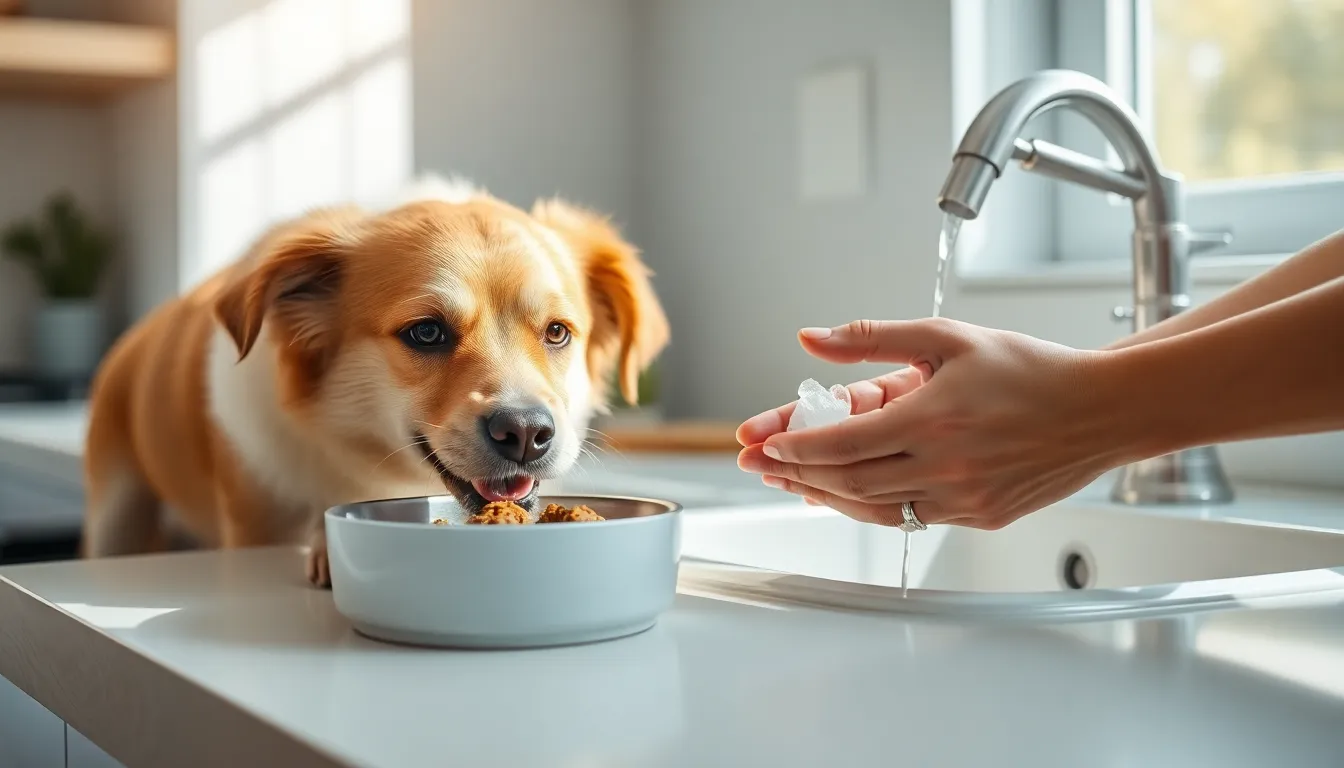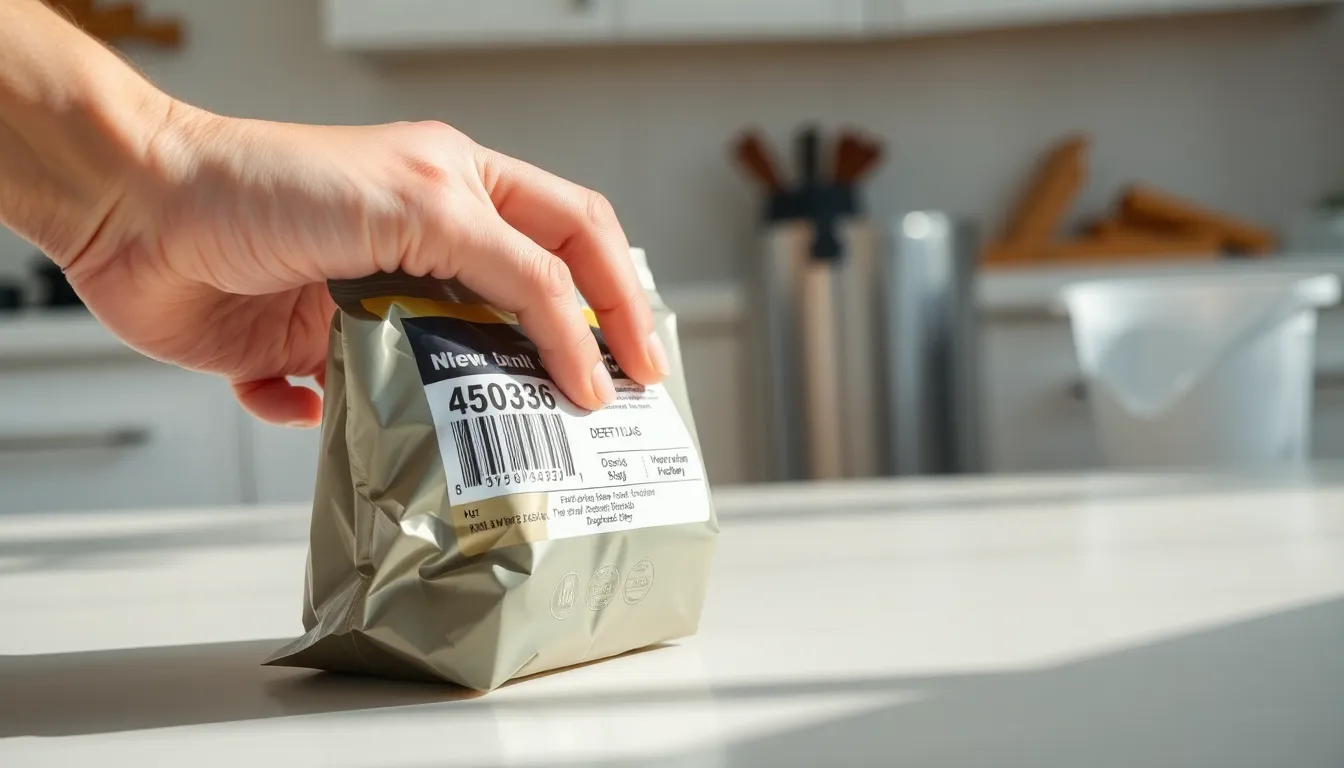Pet owners should be aware that the FDA issues voluntary recalls for several pet food brands, as two manufacturers have initiated widespread recalls due to potential Salmonella contamination affecting multiple products. These proactive measures impact six different brands and product lines, necessitating immediate attention to safeguard both animal and human health.
Pet Owner Action:
- Immediately check pet food for specific lot numbers, UPCs, or best by dates of recalled brands; safely dispose of or return affected products, and always practice thorough hand hygiene after handling pet food.
Salmonella Risks:
- Recognize the potential for Salmonella to cause illness in both pets (lethargy, diarrhea, fever) and humans (fever, nausea, vomiting), making diligent handwashing crucial after contact with any pet food.
Preventative Recalls:
- These voluntary recalls demonstrate a proactive approach by manufacturers, successfully preventing any reported pet or human illnesses associated with the contaminated products, underscoring their importance in safeguarding public health.
Two Companies Recall Six Pet Food Brands Over Salmonella Concern
Recently, the pet food industry has seen significant activity as two distinct manufacturers initiated voluntary recalls. These actions specifically impact six different brands and product lines, encompassing a total of five specific product listings and two distinct product sizes. The primary concern driving these measures is the potential for salmonella contamination, prompting proactive steps to ensure pet safety. This situation demonstrates how the FDA issues voluntary recalls for several pet food brands when potential health risks emerge.
Foodynamics Brands and Products Impacted
One of the companies at the center of these recalls is Foodynamics. This manufacturer has identified potential contamination across four of its popular pet food brands. These include Raw Dog Barkery, What’s in the Bowl, BellePepper Cats, and Kanu Pets. Pet owners need to carefully check their products if they use any of these brands.
The Foodynamics recall specifically targets five distinct product listings. Among these are Raw Dog Barkery Whole Chicken Hearts, a popular raw pet food item. Also included are BellePepper Cats Freeze Dried Chicken Heart Slices. These examples highlight a focus on raw and freeze-dried pet food categories. Consumers are advised to refer to the official recall notices for full details on specific lot numbers and affected dates.
Raw Bistro Pet Fare’s Voluntary Recall
Another significant recall comes from Raw Bistro Pet Fare. This company has voluntarily recalled its Raw Bistro Dog Fare Grass-Fed Beef Entrée brand. The recall specifically pertains to two particular product sizes of this popular item. These are the 3 lb bags and the larger 18 lb cases.
Like the Foodynamics recall, Raw Bistro Pet Fare’s decision stems from potential salmonella contamination. Such voluntary actions are crucial for public health and reflect a commitment to pet well-being. Identifying and removing affected products from circulation helps prevent further spread of the bacteria. Both companies are working to minimize any risks to pets and their owners.
Understanding Salmonella Risks for Pets and Humans
Salmonella is a type of bacteria that can cause a severe illness called salmonellosis. This condition can affect both animals and humans. In pets, common symptoms include lethargy, diarrhea that might be bloody, fever, vomiting, and a noticeable decrease in appetite. Some animals may carry the bacteria without showing any outward signs. However, even asymptomatic carriers can still transmit the infection to other animals or people.
Human beings who handle contaminated pet food, particularly raw varieties, are also at risk of infection. Symptoms in humans often include fever, nausea, vomiting, abdominal pain, and sometimes even more severe, potentially fatal infections. Health authorities, such as the Centers for Disease Control and Prevention (CDC), consistently stress the importance of thorough handwashing. This practice is vital after handling any pet food or treats, especially those that might be subject to a recall. The ongoing situation where the FDA issues voluntary recalls for several pet food brands underscores the critical nature of these hygiene practices.
The Importance of Voluntary Recalls and Proactive Measures
The term “voluntary recall” indicates that the manufacturers themselves initiated these actions. This is often a result of their internal testing or monitoring identifying potential problems. Such proactive engagement is vital for minimizing consumer exposure to harmful contaminants. It also demonstrates a strong sense of corporate responsibility. These companies are working in cooperation with regulatory bodies, including the FDA, to ensure proper public health protocols are followed.
The collective scope of six brands and product lines under recall, initiated by these two manufacturers, emphasizes the importance of swift action. This rapid response helps protect the health of countless pets and their families across various communities. Understanding the voluntary nature of these recalls can provide reassurance to consumers. It confirms that companies are taking necessary steps to address safety concerns promptly and effectively.
Guidance for Pet Owners During a Recall
Pet owners should immediately check any pet food products they currently have on hand. It is essential to verify if they match the brands, specific product listings, or sizes mentioned in the recall notices. Detailed information is typically available on the FDA website and the manufacturers’ own channels. If you identify any recalled product, do not feed it to your pet under any circumstances.
The recommended course of action is to either return the product to the original place of purchase for a full refund. Alternatively, you should dispose of it safely. Ensure disposal methods prevent consumption by other animals. Always maintain strict hygiene practices, including washing hands thoroughly with soap and water. This is particularly crucial after handling any pet food, especially raw options. For broader information on pet dietary needs, understanding people foods to avoid for pets can also enhance overall pet health. The continuous vigilance by both the FDA and manufacturers in issuing these FDA issues voluntary recalls for several pet food brands is a reminder for all pet parents to remain informed and proactive.

Zero Pet or Human Illnesses Reported from Contaminated Products
Recent headlines confirm that the FDA issues voluntary recalls for several pet food brands due to potential Salmonella contamination. Specifically, two companies, Foodynamics and Raw Bistro Pet Fare, have proactively announced recalls for certain products. Despite these important precautionary steps, a critical fact provides significant reassurance to pet owners: there have been zero reports of adverse health effects received for either pets or humans linked to these particular recalls.
This quantifiable absence of reported illnesses is a testament to the voluntary nature of these recalls. Both companies acted swiftly to remove potentially affected items from the market. Their quick response demonstrates a strong commitment to pet and human health. This proactive stance helps prevent any actual health issues from arising.
No Illnesses Despite Precautionary Recalls
The detailed evidence confirms the absence of illness reports from the involved companies. Foodynamics has received zero reports of adverse health effects. Similarly, Raw Bistro Pet Fare has also reported zero reports of illnesses from their recalled products. This applies consistently across both the pet population and any humans who may have handled the contaminated items.
A total of two companies, Foodynamics and Raw Bistro Pet Fare, currently have no reported cases of illness. This situation highlights the effectiveness of voluntary recalls as a preventative measure. These companies are prioritizing the safety and well-being of their customers and their pets. The immediate actions taken aim to protect consumers before any incidents occur.
It is important to understand the distinction between a potential contamination and a confirmed outbreak. While the presence of Salmonella is a concern, no actual illnesses have been linked to these specific products. Pet owners can find comfort in this lack of reported adverse incidents. The current focus remains on prevention and continued vigilance in food safety.
Recognizing Potential Salmonella Symptoms in Pets
Even in the absence of reported illnesses from these recalls, understanding Salmonella infection in pets remains crucial. Owners should be vigilant for specific signs that may indicate exposure to the bacteria. Common symptoms include a noticeable lethargy, where your pet appears unusually tired or less active than normal. Diarrhea is another prevalent sign, which can sometimes be bloody.
Other indicators of Salmonella infection in pets may include fever and vomiting. These symptoms typically manifest within 12 to 72 hours following exposure. If your pet exhibits any of these signs, especially after handling new pet food, veterinary consultation is highly recommended. Early intervention can significantly improve outcomes for affected animals.
It is also important to note that healthy pets can surprisingly be carriers of Salmonella without displaying any symptoms. These asymptomatic carriers can still shed the bacteria, potentially spreading it to other animals or humans. Maintaining strict hygiene practices, such as washing bowls and toys, is always advisable. Additionally, exploring best organic dog food options can contribute to a healthy gut microbiome, potentially reducing susceptibility.
Minimizing Human Risk from Contaminated Pet Products
The risk of Salmonella transmission to humans primarily arises from direct handling of contaminated pet products. This includes pet food, treats, or even contact with contaminated surfaces. Inadequate hand washing after handling these items is the most common pathway for human infection. Simply touching your mouth after contact can facilitate bacterial transfer.
Thorough hand washing with soap and water is paramount after handling any pet food or treats. This practice is especially critical when preparing raw pet food diets. Vulnerable populations, such as young children, the elderly, and individuals with compromised immune systems, should take extra precautions. They should avoid direct contact with pet food where possible, or have an adult supervise.
To prevent cross-contamination, always clean pet food bowls, scoops, and preparation surfaces meticulously. Use hot, soapy water or a dishwasher to sanitize these items regularly. Such hygiene measures are essential in mitigating the risk of bacterial spread within the household. Learning about people foods to avoid for pets can also inform general safe food handling practices around pets.
Understanding the details when the FDA issues voluntary recalls for several pet food brands empowers pet owners to act responsibly. Combining awareness of potential risks with stringent prevention strategies is key to maintaining a safe environment. While the current recalls have not led to reported illnesses, continuous vigilance regarding pet food safety practices is always a priority. Diligent hand hygiene and careful handling of all pet products protect both your beloved companions and your family members.

Detailed Identifiers for Recalled Pet Food Products and Disposal Mandate
The proactive stance taken by the FDA issues voluntary recalls for several pet food brands, underscoring the critical need for pet owners to meticulously identify potentially affected products in their homes. Consumers are equipped with precise tools to ascertain if their pet food falls under these advisories, primarily utilizing specific lot numbers, UPCs, and best by dates. Swift and accurate identification is paramount, as the FDA unequivocally recommends the secure disposal of all recalled items to prevent any further exposure to pets or wildlife. Understanding these detailed identifiers is the first and most crucial step in safeguarding animal health.
Pinpointing Recalled Foodynamics Products
Foodynamics has initiated a significant recall impacting several of its popular pet food lines. To ensure the safety of beloved pets, owners must carefully examine product packaging for specific identifying marks. For items under the Raw Dog Barkery and What’s in the Bowl brands, pet owners should verify the lot number 030527. This unique code is essential for distinguishing the affected batches from safe products and is typically printed on the back or bottom of the packaging.
Beyond these specific brands, other Foodynamics products are also included in the voluntary recall. BellePepper Cats 3 oz. bags are impacted by two distinct lot numbers: 121426 and 011526. Similarly, Kanu Pets 3 oz. bags are identifiable by the specific recalled lot number 031627. Pet owners are strongly advised to cross-reference these precise identifiers with their existing pet food inventory. This diligent check ensures the prompt removal of any potentially harmful products from their pets’ reach, upholding the highest standards of care.
Identifying Recalled Raw Bistro Pet Fare Products
Another critical advisory impacts Raw Bistro Pet Fare, specifically their Grass-Fed Beef Entrée. This product is affected across both its 3 lb bags and larger 18 lb cases. All concerned consumers should meticulously search for the shared lot number 239 on these product packages. The consistent presence of this single lot number across different package sizes is a key indicator for this particular recall, signifying a specific production run that poses a potential health risk to animals.
To further aid in precise identification, Raw Bistro Pet Fare products have distinct UPCs. The 3 lb bags of Grass-Fed Beef Entrée carry the UPC 858833002247, while the 18 lb cases are identified by the UPC 858833002629. Both recalled product sizes also share a critical best by date: 08/27/2026. This comprehensive set of identifiers—lot number, UPC, and best by date—provides pet owners with all necessary information to confirm if their purchase is part of the recall. The FDA issues voluntary recalls for several pet food brands to protect animals, making this verification process vital.
FDA’s Mandate for Secure Disposal and Prevention of Exposure
Once a recalled pet food product has been accurately identified, the next crucial step is proper disposal. The FDA’s recommendation is clear and imperative: all recalled pet food must be disposed of within a secure container that is absolutely inaccessible to other animals or wildlife. This mandate extends to household pets, neighborhood animals, and any wild creatures that might otherwise scavenge for food. The primary objective of this strict disposal guideline is to prevent any secondary exposure to the contaminants that prompted the recall.
Improper disposal of recalled pet food can lead to severe health consequences for any animal that consumes it. These products may harbor bacteria like Salmonella, mold toxins, or unbalanced nutrient levels, such as excessive vitamin D, all of which can cause serious illness or even be fatal. Secure disposal not only protects individual animals but also minimizes the risk of environmental contamination and the potential spread of pathogens within broader ecosystems. Just as knowing which human foods to avoid for pets is critical, understanding proper disposal of recalled pet food is equally important for their well-being. Pet owners bear a significant responsibility in ensuring both their own pets and the wider animal community remain safe from these dangers, a principle strongly supported by the FDA issues voluntary recalls for several pet food brands to maintain animal health and safety standards.
Featured image generated using Flux AI
FDA: “Correction: Foodynamics Recalls Raw Dog Barkery, Bellepepper Cats, and Kanu Pets Brand Freeze-Dried Pet”
FDA: “Raw Bistro Pet Fare Voluntarily Recalls Frozen Beef Entree Because of Possible Salmonella Health Risk”
al.com: “FDA issues voluntary recalls for several pet food brands”
